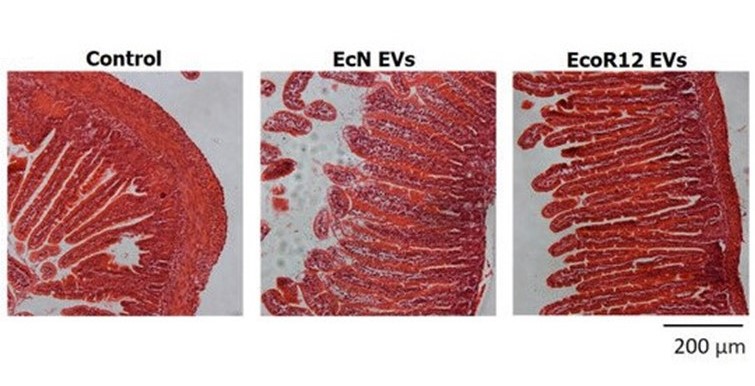Microbiota-Derived Extracellular Vesicles Promote Immunity and Intestinal Maturation in Suckling Rats

In the intricate world of microbiota-host communication, extracellular membrane vesicles (EVs) play a pivotal role. These tiny messengers, secreted by the gut microbiota, have been extensively studied in various human diseases. Yet, their impact on early life development remains a mystery.
A recent study led by Laura Baldomà Llavinés from Universitat de Barcelona investigated the effects of daily administration of EVs from probiotic and commensal E. coli strains in healthy suckling rats during the first 16 days of life.
On days 8 and 16, the researchers meticulously analyzed multiple aspects including animal growth, humoral and cellular immunity, epithelial barrier maturation, and intestinal architecture. The results revealed intriguing insights.
By day 16, rats treated with probiotic/microbiota EVs showcased elevated levels of plasma IgG, IgA, and IgM, indicating a bolstered immune response. Additionally, there was an increase in the proportion of Tc, NK, and NKT cells in the spleen, further underlining the immune-boosting effects of the EVs.
In the small intestine, the EVs induced an expansion in the villi area and orchestrated a shift in gene expression towards an anti-inflammatory and barrier protective profile, starting as early as day 8.
In essence, the study suggests that interventions involving probiotic/microbiota EVs could serve as a safe postbiotic strategy to stimulate immunity and promote intestinal maturation during the crucial early stages of life.
Image Credits: Martinez-Ruiz et al. Nutrients (2023)